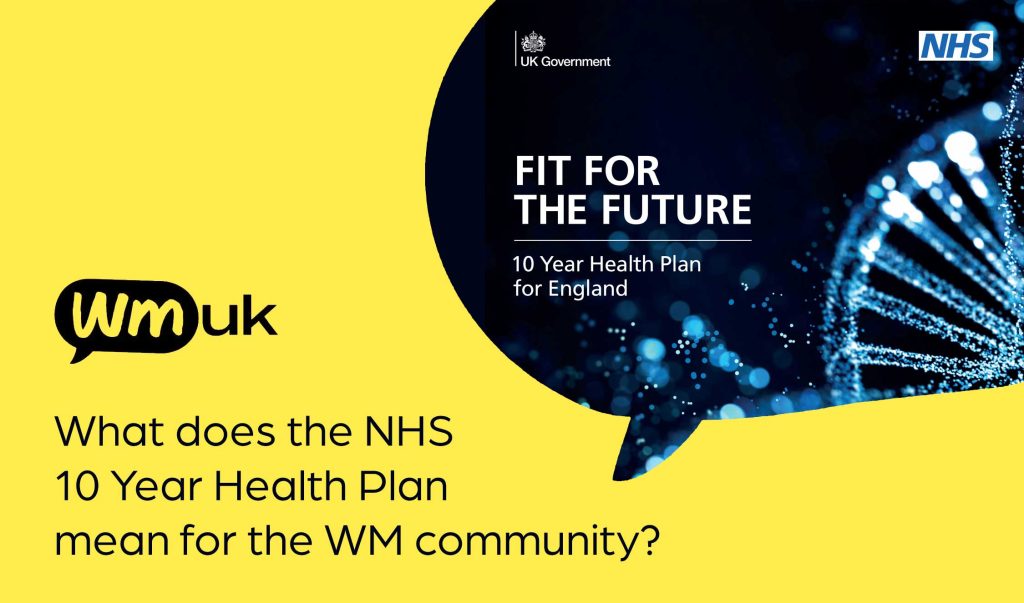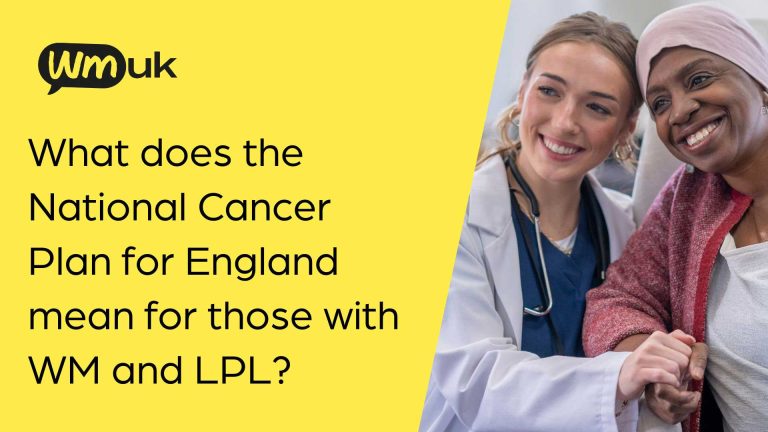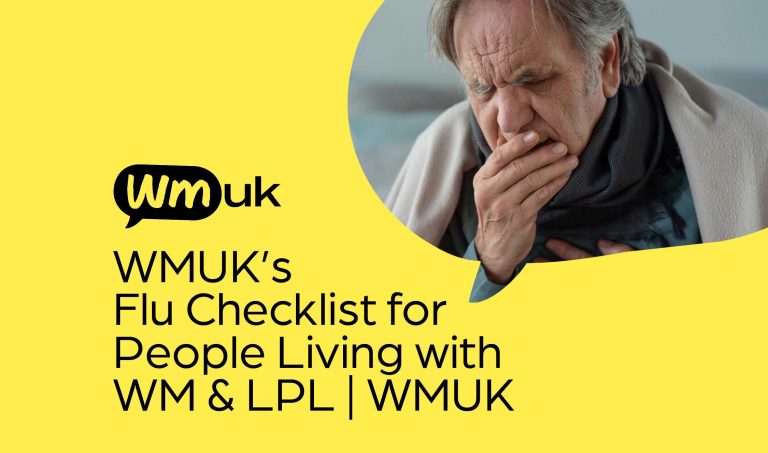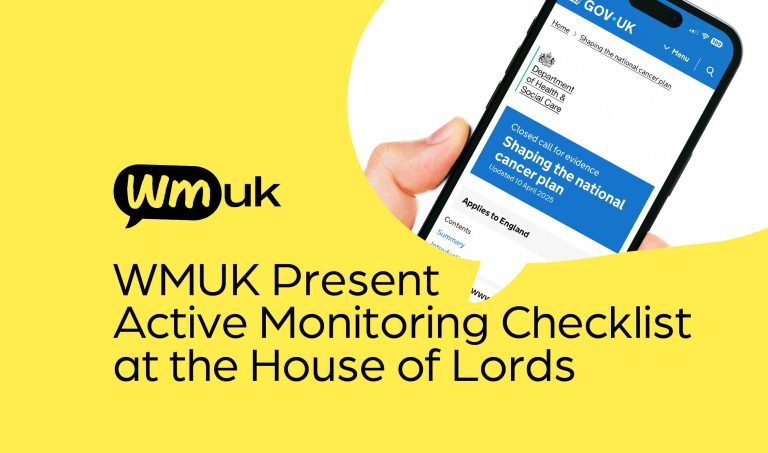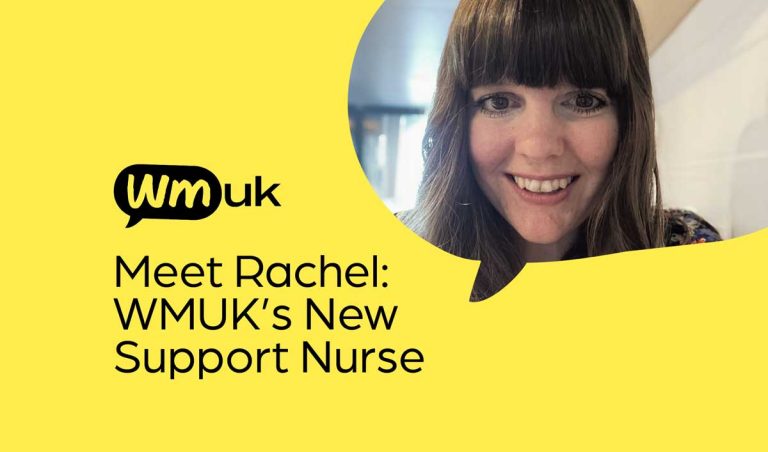On the 3 July the government published its 10 Year Health Plan, after months of consultation with the public, NHS staff, organisations, industry and partners. The ambitious plan outlines the government’s vision for the NHS with both short- and long-term changes.
In Autumn 2024, WMUK consulted with the WM community about the changes you wanted to see in the NHS that would improve care and outcomes for people with WM. We responded to the consultation, outlining our arguments for:
- A Cancer Plan with targets that specifically address the needs of patients with rare and complex non-stageable cancers
- Consistent and equitable access to both specialist and ambulatory health services for WM patients
- Access to expert, up-to-date disease specific information for all WM patients and their families, friends and unpaid carers
- Specific investment into training more Clinical Nurse Specialists (CNSs), and bringing in more CNSs to operate within the community as a bridge between specialist and community health services
- Integrate the use of specialist, disease-specific apps within NHS services so that people with WM can take a more active part in their care whilst contributing directly to research into their rare disease
- Reform of regulatory and funding processes around new treatments and clinical trials for rare and uncommon diseases
The Government plans to deliver its changes through three key shifts: hospital to community; analogue to digital; and sickness to prevention. But what does this plan mean for people with WM?
Hospital to community
People with WM often tell us the distances they travel, even when on Active Monitoring, so we welcome the initiative of the Neighbourhood Health Service, which aims make health services more local and create community hubs where care can be delivered in a more holistic, joined-up manner.
However, WM care needs to be managed by someone with specialist knowledge, and we are keen to learn how the government will ensure people with WM will have equitable access to specialist care.
We are heartened to hear the government are putting emphasis on training more nurses and bringing them into roles to bridge the gap between specialist and local services, as people with WM tell us the difficulties they have in navigating a disjointed system.
We look forward to the publication of the National Cancer Plan and NHS Workforce Plan to better understand how nurses will be supporting those with rare diseases and complex care needs.
The promise to partner with charities to provide specialist information upon diagnosis is encouraging, as is the creation of Diagnosis Connect Service. Particularly as 2/3 of WM patients do not receive WM-specific information upon diagnosis, we’d like to see this service quickly expanded to rarer disease areas where the need for disease-specific, accredited information is so high.
Analogue to digital
WM patients and their families talk about having to continuously repeat themselves to different healthcare professionals and team, whilst remembering important and sometimes complex information about their care. The introduction of the single patient record could change this, taking away this burden from patients and family members.
The NHS App is being relied on heavily to deliver key parts of the ‘analogue to digital’ shift, and although there are elements that we hope will empower patients (such as choosing provider, managing medicines, and uploading health data), we would be keen to learn how the NHS will integrate with apps providing specialist support, information and data storing to give patients with rare disease like WM a more personal experience.
Sickness to prevention
Whilst important to encourage a healthy population, we also know that WM, like many blood cancers, is not the result of lifestyle choices and know that this messaging can lead to a stigma or guilt for those receiving a cancer diagnosis that they could not prevent.
We hope that equal emphasis is also placed the development of the genomics programme to identify those at genetic risk of developing diseases to better support these individuals. We look forward to seeing more tangible measures in the upcoming National Cancer Plan that will improve diagnosis for people with WM and other non-stageable cancers.
Other measures
Reform to processes giving access to treatment is sorely needed for people with WM to have more treatment options and kinder therapies. The plan promises reforms to speed up the processes, but we await to see more in-depth information on how this will be implemented.
For example, NICE will be given the power to withdraw therapies that are no longer deemed cost-effective – we need reassurance that measures like this will not have knock-on effects for older treatments still in use for rare diseases and smaller patient populations.
Policies to quicken the pace of clinical trial set up and increase recruitment to trials is vital work, which we fully support and hope can accelerate the development and adoption of innovative therapies for people with WM. WMUK already works in this area, with the UK’s only database of WM trials.
Addressing inequalities was also a constant through the report, something we know affects the WM community, in particular in accessing specialist care and up to date treatments. Giving patients the information they need to make informed decisions about their care is vital, as are measures to diminish regional variation in access to new treatments.
Final comments
This ambitious plan contains a lot of promising ideas that could bring real improvement in the lives of people affected by WM. However, we need more substantial plans around how this vision will be delivered, and measures that will reassure people with rare cancer that they will not fall through the gaps.
Therefore, we’re looking forward to the publication of the National Cancer Plan, due this autumn, as well as the NHS Workforce Plan and Life Sciences Sector Plan, which we hope will contain more details about how cancer services will be delivered moving forward.
WMUK is here for you
As ever, WMUK remains committed to supporting everyone affected by WM. Our website offers up-to-date information on current clinical trials available to WM patients, along with a wide range of resources and support services.
If you’d like to speak to someone directly, our Support Line is open Monday–Thursday, 9am–5pm on 0300 373 8500.

